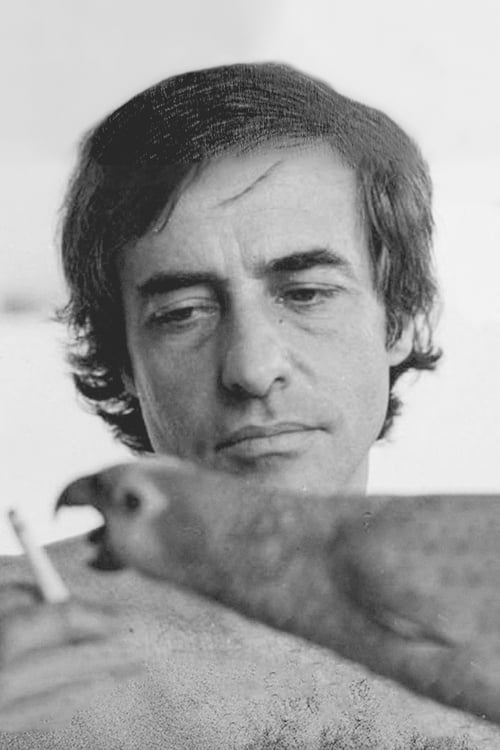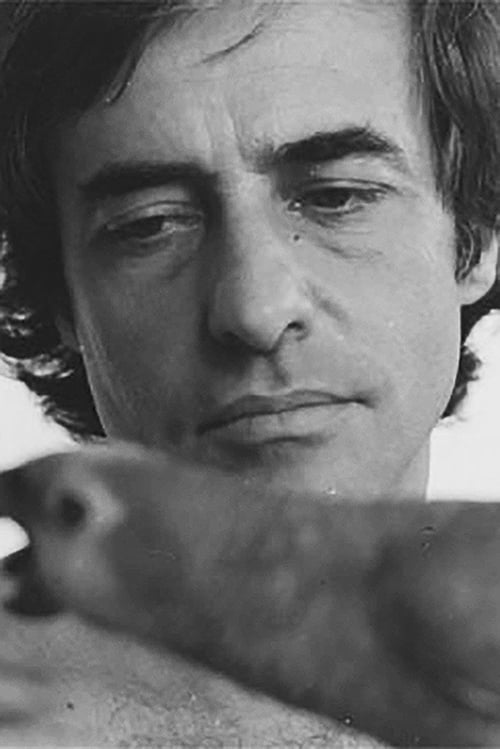Joaquim Pedro de Andrade
Рождение : 1932-05-25, Rio de Janeiro, Brazil
Смерть : 1988-09-10
История
Joaquim Pedro de Andrade was a Brazilian film director and screenwriter. He was a member of the Cinema Novo movement. Andrade is best known for his 1969 film Macunaíma, based loosely on the novel of the same title by Mário de Andrade. His 1962 documentary film Garrincha: Hero of the Jungle was entered into the 13th Berlin International Film Festival.
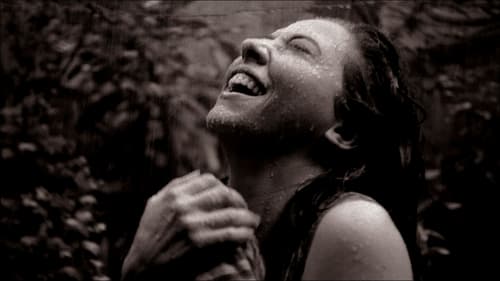
Self - Filmmaker (archive footage)
A deep investigation, in the way of a poetic essay, on one of the main Latin American movements in cinema, analyzed via the thoughts of its main authors, who invented, in the early 1960s, a new way of making movies in Brazil, with a political attitude, always near to people's problems, that combined art and revolution.

Himself (archive footage)

The documentary "Depois do Transe" covers the entire process of creating the masterpiece "Entranced Earth", which was released and awarded at the Cannes Film Festival in 1967. "Entranced Earth" charmed the world and won great admirers such as filmmaker Martim Scorsese and the writer Marguerite Duras, who at the time considered a "fabulous filmic opera."

Screenplay
Fantasy comedy about Brazilian writer Oswald de Andrade, one of the most important icons of Modernism in Brazil. In the film, Oswald is played by two actors: Ítala Nandi, as his feminine anima, and Flávio Galvão, as the masculine half.

Director
Fantasy comedy about Brazilian writer Oswald de Andrade, one of the most important icons of Modernism in Brazil. In the film, Oswald is played by two actors: Ítala Nandi, as his feminine anima, and Flávio Galvão, as the masculine half.

Director
Comedy in 4 segments. In "Arroz e Feijão" (Rice and Beans), owner of a boarding-house seduces her young countryboy tenant. In "As Três Virgens" (The Three Virgins) three spinsters are influenced by the behaviour of their teenager niece, whom they are lodging. In "O Arremate" (The Purchase) a colonist turns his virgin daughter in to a landowner, to have his debts forgiven. And, finally, in "Vereda Tropical" (Tropical Trail), a man becomes sexually obsessed by a watermelon, to the point of having sexual intercourse with it. The stories are based on prize-winner short stories, from a Playboy contest.

Director
O Aleijadinho, a study of the work of Antonio Francisco Lisboa, the architect whose cathedral de Andrade had assisted in the restoration of more than 20 years earlier. de Andrade dedicated the film to his father, who had sent him on the expedition.

Writer
In the island of Paquetá, professor investigates the genital vocation of vegetables and fruits, maintaining sexual relations with a watermelon. In his experiences, he counts on the interlocution of an attentive student.

Director
In the island of Paquetá, professor investigates the genital vocation of vegetables and fruits, maintaining sexual relations with a watermelon. In his experiences, he counts on the interlocution of an attentive student.

An hour-long conversation with Brazilian Cinema Novo director Joaquim Pedro de Andrade conducted by Sylvia Bahiense.

Executive Producer
After staying the day at the gym, eating and drinking, Carlos, a fat man, go meet his parents, Helena and Jorge, at the party they are throwing. He is drunk and end up having a fight and leaving home.

Producer
Адвокат Осирис занимается делами о разводах. Любую клиентку он рассматривает как возможный вариант для интима. А работы много... Череда историй о супружеских конфликтах людей самого разного возраста.

Screenplay
Адвокат Осирис занимается делами о разводах. Любую клиентку он рассматривает как возможный вариант для интима. А работы много... Череда историй о супружеских конфликтах людей самого разного возраста.

Director
Адвокат Осирис занимается делами о разводах. Любую клиентку он рассматривает как возможный вариант для интима. А работы много... Череда историй о супружеских конфликтах людей самого разного возраста.
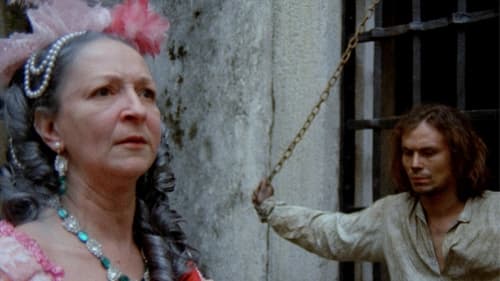
Writer
The real story of the failed attempt of an independence coup by a group of intellectuals and rich men during Brazil's colonial days, from its beginning to the execution of Tiradentes.

Director
The real story of the failed attempt of an independence coup by a group of intellectuals and rich men during Brazil's colonial days, from its beginning to the execution of Tiradentes.

Director
Short documentary about the ideology of publicity and mass medias.
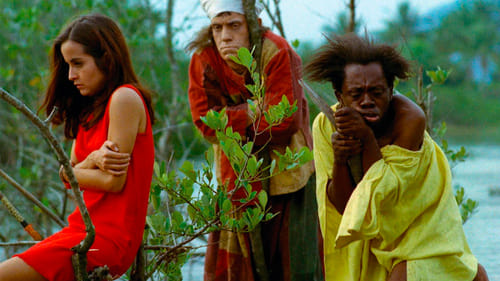
Producer
Макунаима — ленивый антигерой, афроамериканец, рожденный в Амазонии. Повзрослев, он осознает цель своей жизни, которая ведет его в Большой Город. После смерти матери он с двумя своими братьями едет в Рио-де-Жанейро. В пути с ним происходят большие чудеса. Встав под поток воды, он становится белым и фантатически красивым. Макунаима упивается своим новым цветом кожи, который изменяет его жизнь и открывает двери разных карьерных возможностей в столичном Сан-Пауло. Оставаясь большим ребенком, Макунаима влюбляется в девушку-революционерку, которая участвует в герилье с оружием в руках, борясь против военной диктатуры. У них рождается черный ребенок. После того, как девушка и ребенок будут убиты, Макунаима будет мстить, но, в конце концов, возвратится обратно в джунгли.

Screenplay
Макунаима — ленивый антигерой, афроамериканец, рожденный в Амазонии. Повзрослев, он осознает цель своей жизни, которая ведет его в Большой Город. После смерти матери он с двумя своими братьями едет в Рио-де-Жанейро. В пути с ним происходят большие чудеса. Встав под поток воды, он становится белым и фантатически красивым. Макунаима упивается своим новым цветом кожи, который изменяет его жизнь и открывает двери разных карьерных возможностей в столичном Сан-Пауло. Оставаясь большим ребенком, Макунаима влюбляется в девушку-революционерку, которая участвует в герилье с оружием в руках, борясь против военной диктатуры. У них рождается черный ребенок. После того, как девушка и ребенок будут убиты, Макунаима будет мстить, но, в конце концов, возвратится обратно в джунгли.

Director
Макунаима — ленивый антигерой, афроамериканец, рожденный в Амазонии. Повзрослев, он осознает цель своей жизни, которая ведет его в Большой Город. После смерти матери он с двумя своими братьями едет в Рио-де-Жанейро. В пути с ним происходят большие чудеса. Встав под поток воды, он становится белым и фантатически красивым. Макунаима упивается своим новым цветом кожи, который изменяет его жизнь и открывает двери разных карьерных возможностей в столичном Сан-Пауло. Оставаясь большим ребенком, Макунаима влюбляется в девушку-революционерку, которая участвует в герилье с оружием в руках, борясь против военной диктатуры. У них рождается черный ребенок. После того, как девушка и ребенок будут убиты, Макунаима будет мстить, но, в конце концов, возвратится обратно в джунгли.

Writer
In 1967, de Andrade was invited by the Italian company Olivetti to produce a documentary on the new Brazilian capital city of Brasília. Constructed during the latter half of the 1950s and founded in 1960, the city was part of an effort to populate Brazil’s vast interior region and was to be the embodiment of democratic urban planning, free from the class divisions and inequalities that characterize so many metropolises. Unsurprisingly, Brasília, Contradições de uma Cidade Nova (Brasília, Contradictions of a New City, 1968) revealed Brasília to be utopic only for the wealthy, replicating the same social problems present in every Brazilian city. (Senses of Cinema)

Director
In 1967, de Andrade was invited by the Italian company Olivetti to produce a documentary on the new Brazilian capital city of Brasília. Constructed during the latter half of the 1950s and founded in 1960, the city was part of an effort to populate Brazil’s vast interior region and was to be the embodiment of democratic urban planning, free from the class divisions and inequalities that characterize so many metropolises. Unsurprisingly, Brasília, Contradições de uma Cidade Nova (Brasília, Contradictions of a New City, 1968) revealed Brasília to be utopic only for the wealthy, replicating the same social problems present in every Brazilian city. (Senses of Cinema)

Director
Originally produced for German TV, Improvised and Purposeful is a firsthand look at the "Cinema Novo" movement (otherwise known as the 'Brazilian New Wave'). Director Joaquim Pedro de Andrade focuses on six Cinema Novo filmmakers working in Rio in 1967.

Screenplay
In a small town in Minas Gerais, the arrival of a young priest causes a commotion in the conservative atmosphere of the place, aggravated by the sudden attraction this priest feels for a beautiful girl. This forbidden love affair soon turns into an unbridled passion.

Editor
In a small town in Minas Gerais, the arrival of a young priest causes a commotion in the conservative atmosphere of the place, aggravated by the sudden attraction this priest feels for a beautiful girl. This forbidden love affair soon turns into an unbridled passion.

Producer
In a small town in Minas Gerais, the arrival of a young priest causes a commotion in the conservative atmosphere of the place, aggravated by the sudden attraction this priest feels for a beautiful girl. This forbidden love affair soon turns into an unbridled passion.

Director
In a small town in Minas Gerais, the arrival of a young priest causes a commotion in the conservative atmosphere of the place, aggravated by the sudden attraction this priest feels for a beautiful girl. This forbidden love affair soon turns into an unbridled passion.
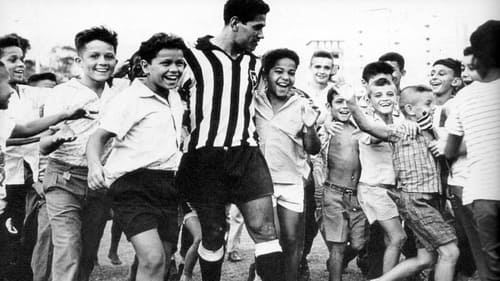
Editor
Documentary about the most famous dribbler in Brazilian Soccer (some say in Soccer's history!) at the zenith of his career, showing classic scenes of 1958 and 1962 World Cup. Garrincha was a very original and talented player, having curved legs. Women and alcohol were his passion, and the cause of his later decadence. After a glorious career, he died in financial misery, forgotten.

Writer
Documentary about the most famous dribbler in Brazilian Soccer (some say in Soccer's history!) at the zenith of his career, showing classic scenes of 1958 and 1962 World Cup. Garrincha was a very original and talented player, having curved legs. Women and alcohol were his passion, and the cause of his later decadence. After a glorious career, he died in financial misery, forgotten.

Director
Documentary about the most famous dribbler in Brazilian Soccer (some say in Soccer's history!) at the zenith of his career, showing classic scenes of 1958 and 1962 World Cup. Garrincha was a very original and talented player, having curved legs. Women and alcohol were his passion, and the cause of his later decadence. After a glorious career, he died in financial misery, forgotten.

Writer
A few weeks before Carnival, slum boys organize huntings for stray cats, whose leather can be used in Samba percussion instruments, like the Tamborim, a small drum.
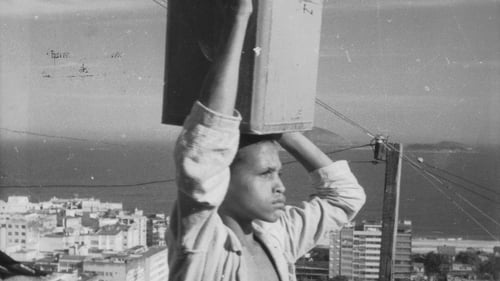
Writer
Five segments about the hardships faced by people living in slums on hills in Rio de Janeiro.

Director
A few weeks before Carnival, slum boys organize huntings for stray cats, whose leather can be used in Samba percussion instruments, like the Tamborim, a small drum.

Director
Five segments about the hardships faced by people living in slums on hills in Rio de Janeiro.
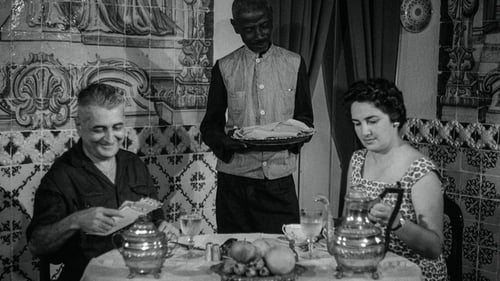
Screenplay
Documentary about influential Brazilian sociologist Gilberto Freyre, made in his country house in Apipucos, Pernambuco (Northeast Brazil).

Screenplay
A 10-minute portrait of modernist poet and de Andrade’s godfather, Manuel Bandeira, is clear in its affection for it subject, though like many New-Waveish films of the time, depicts the modern urban landscape as an ominous and alienating force.

Director
Documentary about influential Brazilian sociologist Gilberto Freyre, made in his country house in Apipucos, Pernambuco (Northeast Brazil).

Director
A 10-minute portrait of modernist poet and de Andrade’s godfather, Manuel Bandeira, is clear in its affection for it subject, though like many New-Waveish films of the time, depicts the modern urban landscape as an ominous and alienating force.

Assistant Director
Institutional film made for Petrobras in 1958, through a public announcement, about the company's actions for the training of technicians specialized in petroleum engineering.

Screenplay
Institutional film made for Petrobras in 1958, through a public announcement, about the company's actions for the training of technicians specialized in petroleum engineering.
